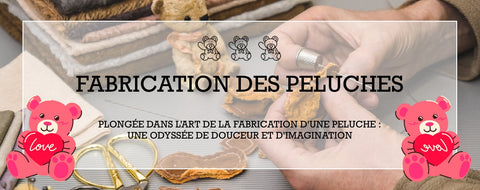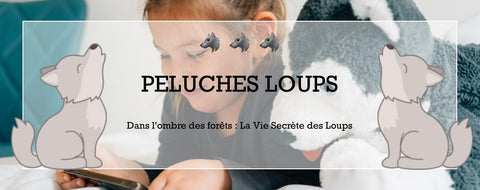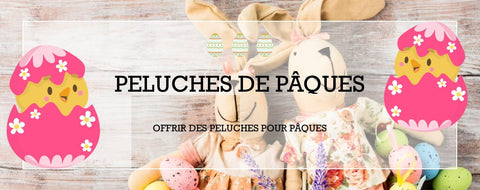
The Secrets of Adults Who Still Sleep With Their Stuffed Companion
of reading - words
Did you sleep with a stuffed animal , doll or special blanket when you were a kid 🏡?
Lots of us did, and funny enough, lots of us still do. We still rely on these soft and reassuring objects to comfort us during our adult years. Known as a "bridging object" in the psychology world, they can still provide a sense of security for young adults starting college or a new job.
Or, you remember that scene in the classic Love Actually, where Laura Linney's character Sarah quickly hides (and reassuringly kisses) her childhood teddy bear that lives on her bed before welcoming a sexy guy in his room? It's a relatable moment for many of us who still sleep with our teddy bear 🧸 (or frog or tiger, or whatever kind of stuffed animal it is) and feel a bit of shame in the face of the habit that society tells us it has long since abandoned.
Psychologists say there's nothing unusual and there's no mandate to give up your favorite stuffed animal or other sentimental items 💞 at a certain age - they'll just become less important when you no longer need it.
1) You're not the only one snuggling up to your stuffed animal!
If this describes you, know that you're not alone: A 2017 survey of more than 2,000 adults found that 43 percent still sleep with a teddy bear . Of course, that's not the overwhelming majority, but it's enough evidence to support the idea that holding on to your safety toy isn't that strange, or even something that could compromise your status. adult of good faith. The stuffed animal is a reminder of home and a comforting thing to snuggle up with at night 🌃!
And despite traditional clichés about gender, it is men who are most likely to still have at least one stuffed animal, 84% of men ♂️ admit it, compared to 77% of women ♀️ (study carried out by Life Storage, in collaboration with One Poll).

Stranger still, not all of these animals are just nostalgic plush childhood companions. “I see a lot of men buying us stuffed animals for themselves ,” said Marissa Louie, founder of BearBear. “They love the quality and expressiveness of these animals 🐸. Sometimes men with their own children buy stuffed animals for themselves and keep one for their children!” But, could clinging to such comforting objects from childhood be an unhealthy sign of regression?
2) Is it "normal" to sleep with stuffed animals from your childhood?
A- A question of identity
According to Howard S. Friedman, a psychology professor at the University of California, Irvine, who studies longevity and health, there are likely dozens of psychosocial reasons why people keep and sometimes even sleep with items from their childhood ( including their stuffed animals). “But most of these reasons revolve around questions of identity , that is, how you perceive yourself in terms of your relationships with your family, your peers and your associates,” says Friedman. "The things we have around us help us maintain that identity. That's why many react to a devastating fire 🔥 that takes all their possessions by saying things like, 'My life is over.'

For both men and women, Friedman thinks a troubled childhood might be a predictor of whether adults will continue to sleep with stuffed toys. “If you had a sample of people who had particularly good or troubled childhoods, you might see a greater attachment to these toys,” he adds.
B- Cuddle and everything is settled
A different study from the one conducted in Holland, however, suggests that there are other reasons why adult men keep their stuffed toys nearby. In 2013, a series of studies 📊 published in Psychological Science saw researchers at UV University Amsterdam test how people with low self-esteem cope with worries about their own death and the meaning of their life. What they found could explain a lot about this furry love.

“Our findings show that even touching an object like a teddy bear - can soothe 🍃 existential fears,” psychologist and lead researcher Sander Koole explained to the Daily Mail that same year. “Interpersonal touch is such a powerful mechanism that even objects that simulate another person’s touch can help instill in people a sense of existential meaning.”
Even in adulthood, many form a strong attachment to these creations. “Many plush lovers give names to their stuffed companions , can describe their personalities and refer to them as if they were real living beings,” says the BSP founder. A scan of the reviews backs up this claim, and one happy customer writes: "I really love it. It has a way of brightening up my room and making me feel so much better. I can't help but smile when I walks into my room and I see her lying in my bed. She makes me feel like all is well in the world 🌏".

C- A feeling of security
According to therapist Margaret Van Ackeren, LMFT, "In most cases, adults sleep with stuffed animals from their childhood because it brings them a sense of security 👷♀ and reduces negative feelings , like loneliness and loneliness. 'anxiety". Indeed, these tools can bring you calm and the feeling of not being alone, as they may have been for you when you were little.
|
The act of sleeping with a teddy bear or blanket from childhood is generally considered perfectly acceptable (they can have negative connotations if they are associated with childhood trauma or if they were an emotional substitute for a relative). But behavioral health specialist Tracey Jones, MD, says that assessing the overall health of this act depends on whether it is "helpful or harmful to a person's emotional integrity, daily functioning, and interpersonal relationships." a person".

For example, do you avoid traveling 🌄 because you can't take your teddy bear with you for some reason? Or does it prevent you from having an intimate relationship with you and a loved one? Both of these situations are red flags .
To summarize, as long as it doesn't interfere or hinder a person's ability to function normally in work, love, and life, it's probably fine to keep your stuffed animal around "Does that stop you from bringing someone home because you don't want anyone to know?" Then it interferes, and it's time to let it go.

3) A balance between his plush and his/her partner
When it comes to the issue of sex and intimacy, the best way to assess the situation is to have honest conversations with your partner , says clinical psychologist Inna Khazan, PhD. If your partner feels threatened by the stuffed animal's presence (perhaps you cuddle it instead), explain its importance, but also be open to listening 👂 to their concerns.
And if your bear, blanket, or whatever object you like to hug isn't exerting a negative force on your life 😀, Van Ackeren says there's no reason to break the habit if you don't want it. If this is the case for you, go for it, be a little stronger!

4) How to break up with your bear (if that's what you want)
If the relic is a source of ongoing tension with your partner, or if you feel like it's simply time to break up , that's certainly an option, but expect it to take time and effort. emotional energy ⚡. After all, it's something you've spent a lot of your life with.
Dr. Khazan recommends seeking help from a mental health professional 👨⚕ to guide you through the process and take baby steps, so to speak. “I suggest weaning off gradually, until you no longer need the bear,” she says. Here's how, in three steps:
- Step One: Move the bear from your loving embrace in bed to your nightstand 🛋.
- Step two: Move it a little further away, maybe to the top of your dresser 🔝.
- Step Three: Move it further away, somewhere out of reach and sight, like under the bed, in a closed closet, or in another room 🚪.

According to Dr. Khazan, guided meditations and breathing practices can help you stay calm and peaceful throughout the process, especially in the evenings when it's time to calm down and fall asleep 😴.
And since you're used to using a sleep tool that provides you with a source of comfort, therapist Julia Baum, LMHC, says you might consider making a new addition to your sleep environment to fill the void, like a sleep blanket. -gravity that reduces anxiety 😌 and sleep better or a silk pillowcase.

Whether it's cuddling them for safety or simply touching them for reassurance of their place in this world 🤸♀, it's clear that there are still plenty of adults who aren't quite ready to give up their teddy bear . As long as it doesn't negatively impact your life, there's nothing to worry about. So keep cuddling him!










